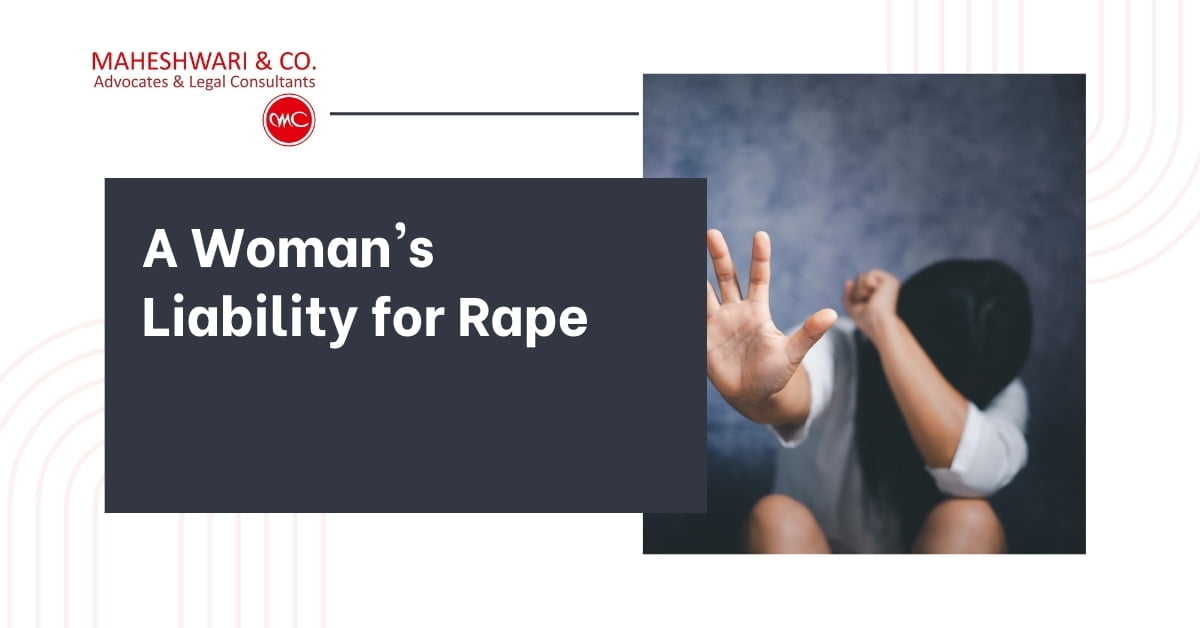INTRODUCTION
Recently, the Hon’ble Allahabad High Court passed a controversial verdict on an issue related to the offence of rape. In an application preferred under Section 482 of Code of Criminal Procedure, 1973 (‘CrPC’) against the order dated 03-12-2018, whereby the applicant had been summoned to face trial for offences under Section 376-D, 212 of the Indian Penal Code, 1860 (‘IPC’), The Hon’ble High Court observed that a woman cannot commit the offence of rape under Indian law, but if she facilitates the act of rape with a group of people, then she can be prosecuted for gang rape under the penal code in accordance with the amended provisions.
This verdict has sparked a lot of debate and discussion among legal experts, activists, and the general public. While some have welcomed the decision, others have criticized it as being regressive and patriarchal in nature. In this blog post, we will explore the background of the case and analyze the verdict in detail.
Case title – Suneeta Pandey vs. State Of U.P. And Another [APPLICATION U/S 482 No. – 39234 of 2022]
Citation – Writ Petition (PIL) No.132 of 2014
BACKGROUND OF CASE
The case in question involved a woman who had been accused of succouring a group of men in raping a woman. The victim had alleged that the accused woman had lured the victim to a secluded place where the group of men were waiting and had eventually facilitated the act of rape. The accused woman was charged with rape under Section 376 of the IPC.
The applicant submitted that she is a lady, hence no offence under Section 376-D of IPC is made out against her, thus she has been wrongly summoned by the Court below. Further, it was argued that the applicant has been summoned in exercise of powers conferred under Section 319 CrPC solely relying upon the statement of victim as well as some other extraneous documents, which in fact is not sufficient.
The trial court had acquitted the accused woman on the grounds that a woman cannot commit the offence of rape under the provisions of Indian law. The prosecution challenged this decision in the Hon’ble High Court of Allahabad, which had to decide whether a woman can be held liable for the offence of rape.
The public prosecutor submitted that applicant has committed the alleged offence and it cannot be said that being a lady, the applicant or a women cannot commit offence of rape under 376 D IPC.
OBSERVATION OF THE HIGH COURT
The Hon’ble High Court, in its verdict pronounced by Justice Shekhar Kumar Yadav, held that a woman cannot commit the offence of rape as per the definition of rape under Section 375 of the IPC. The court while referring to the definition of rape, i.e. “a man” is said to commit the offence of rape if he has sexual intercourse with a woman against her will” The court further observed that the use of the word “man” in this definition clearly indicates that only a man can be held liable for the offence of rape.
The Court also observed that this provision embodies a principle of joint liability, and the essence of that liability lies in the mere existence of common intention that presupposes prior concert which may be determined from the conduct of offenders revealed during action.
Furthermore, the court opined that if a woman facilitates the act of rape with a group of people, she can be prosecuted for the offence of gang rape under Section 376D of the IPC. Moreover, the court observed that the definition of gang rape under Section 376D does not specify the gender of the accused, and therefore, a woman can be held liable for the offence if she assists a group of men in committing the act of rape.
ANALYSIS OF THE VERDICT
The Hon’ble High Court’s verdict has been criticized by many for being patriarchal and regressive in nature. Critics argue that the verdict perpetuates the myth that women are incapable of committing sexual offences and reinforces gender stereotypes. Some have also pointed out that the verdict ignores the fact that women “can” and “do” commit sexual offences.
Whilst, a fraction of legal experts have welcomed the verdict, stating that the judgment of the High Court is in line with the existing legal framework. It is being argued by the section of law men that the definition of rape under Section 375 of the IPC clearly specifies that only a man can be held liable for the offence, and the court’s decision is consistent with this definition.
DENOUNCEMENT
The Hon’ble High Court’s verdict has sparked a lot of debate and controversy, and it remains to be seen how it will be interpreted and applied in future cases. It is important to note that regardless of the legal technicalities, the act of sexual violence is a serious crime that has a devastating impact on victims. It is a dire need in the present times that we continue to work towards creating a society that is free from all forms of violence and discriminations, and the citizens are treated with dignity as enshrined under article 21 of the constitution of India.
Author – Abhishek Yadav
Co- Author – Kanishk Jaiswal






